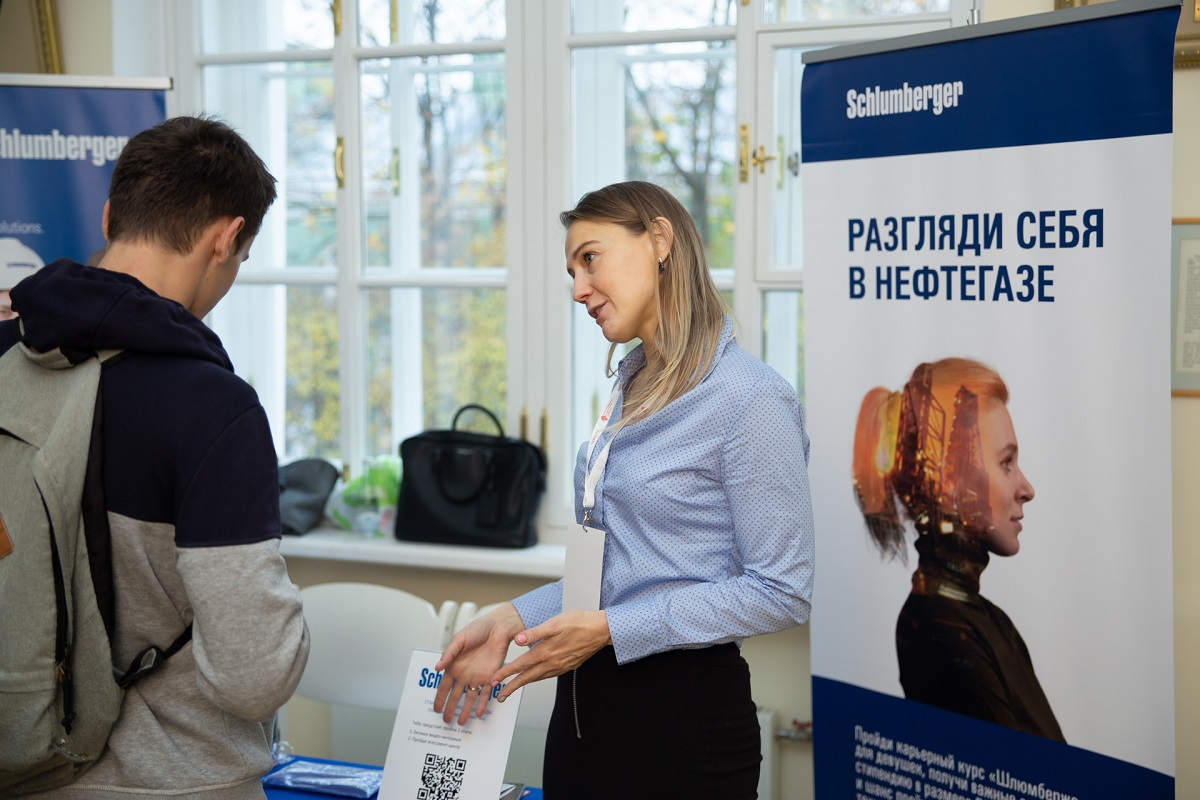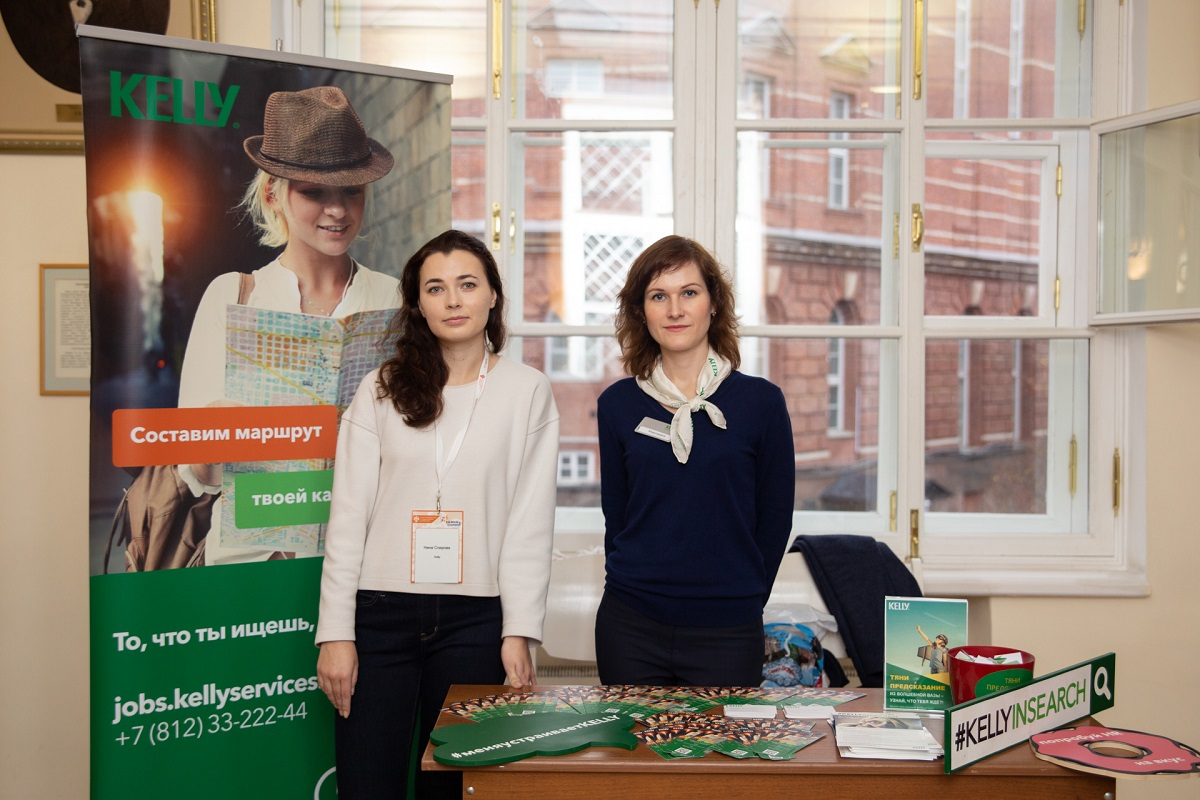From an intern to a CEO: a Career Day has been held at St Petersburg University
The autumn Career Day - 2019 has been held at St Petersburg University. 35 large Russian and international companies took part. They included: British American Tobacco, Deloitte, HP, Huawei, JTI, Microsoft, P&G, KMPG, Unilever, Gasprom Neft and Sberbank.
Students who do not have a work background face difficulties in finding a job. The University Career Day has therefore become a good launching pad. They can meet employers who appreciate their academic education and willingness to learn. ‘We are looking to hire ambitious young people good at mathematics and programming, familiar with machine learning. The University is the best place to acquire such knowledge. St Petersburg University gives a very good background, and yet many things depend on students themselves,’ said Ilia Bykov, a software development manager at Huawei. ‘We are interested in people keen on self-development. That is why we welcome students without any work experience and consider such candidates.’
‘I graduated from St Petersburg University and so I know that only highly motivated, enthusiastic and clever people study there. We would like to see such people among our employees. A lot of University graduates already work for our company. Among them are: mathematicians and programmers in our engineering office; and journalists, economists, psychologists, and sociologists in our non-engineering office,’ said Mariam Janjgava, University Relations Specialist at Veeam Software.
I think, that regardless of their field of study, graduates of St Petersburg University are capable of learning, which is very important. Entering the University is difficult, so after going through such a tough selection, people take study more seriously and feel more confident on graduation.
Mariam Janjgava, University Relations Specialist at Veeam Software
Representatives of different companies and public services gave lectures and master classes. They told students of the University: how to start a career in a public service; how to write a resume; and how to stay calm during a job interview, and to get promoted from the position of an intern to a CEO of a large company. According to Elena Slivko-Kolchik, the head of the education department at Microsoft, career development is not only changing employers, but also shifting between departments within one company. She advised students who look for a job to clarify whether a company they choose is open for such experiments.
However, career does not necessarily involve employment: graduates who have their own scientific developments may try to profit from them by starting a small innovative enterprise. CEO of the small innovative enterprise ‘SPbU Dynamics’ Dmitry Grokholsky shared his experience of commercialisation of science. He spoke about the ways of assessing the commercial potentials of a business idea and finding sources of funding. He explained that future businessmen must either enhance the qualities of an existing service or product, or try to create something new. Looking for something radically new will be both the easiest and the most difficult stage of commercialising the project. On the one hand, it does not require any financial implications, while on the other hand, there not many obvious and commercially successful solutions left. That is why Dmitry Grokholsky advises anyone who decides to start an enterprise to pick one particular sphere and to delve into it, looking closely into all its nuances.
He spoke about a very successful example from his own experience – the creation of a robotised complex for heating systems diagnostics. The project is still at the stage of pilot operation, but the unique robot is soon to be tested in the heating systems of the oil and gas company ‘Tatenergo’. It will then be used for diagnostics of heating systems throughout Russia. CEO of ‘SPbU Dynamics’ said that similar complexes have existed before, but it was the scientific contribution that enabled the performance of the system to be greatly enhanced. The complex was created with the help of the resources of the University. Dmitry Grokholsky said that in the very beginning he found out that none of the many University buildings proved suitable for an engineering laboratory. He also mentioned that building a new University campus will solve this problem and will facilitate the development of the graduates’ enterprises.
One way of starting a business is participation in the competition ‘SPbU Start-Up’, which is held with the support of endowment fund of the University.
It is definitely worth taking part and trying your hand in the competition, especially if you want to become a businessman. You should try, make mistakes, draw conclusions, and try again. Most of the students have no financial possibilities to start a company, whereas the financial resources of the University can let them create an enterprise. I think that this competition can spur people to launch small enterprises.
CEO of the small innovative enterprise ‘SPbU Dynamics’ Dmitry Grokholsky
This year at the ‘Career Day’ students had the possibility to talk to HR managers in a speed dating format. ‘Young people ask me questions about HR in general: how to win a job interview, to write a CV, what internships I would recommend,’ said Elena Savvina, HR specialist at Deloitte. ‘On exhibition stands each company suggests their own internships and events. However, here I try to have a more neutral position and tell about other companies, try to find the potentially interesting professional direction, even if we cannot provide a position in the sphere.’
Throughout the day students could learn about the requirements for the candidates, new internship programmes, and job vacancies.





